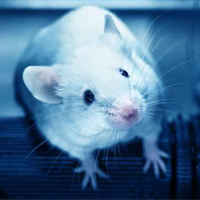Pathology of Mouse Celiac Disease from Gut Microbiome Makeup
The gut microbiome influences gluten-induced celiac disease in mice models, according to findings published in The American Journal of Pathology.

The gut microbiome influences gluten-induced celiac disease in mice models, according to findings published in The American Journal of Pathology.
Researchers from McMaster University in Ontario, Canada studied germ free mice models expressing the human DQ8 gene to determine whether specific microbiota compositions could influence immune responses.
The researchers divided the mice into three groups: germ free, clean specific pathogen free (SPF) mice without opportunistic pathogens and Proteobacteria, and SPF mice with a diverse microbiome including pathogens and Proteobacteria.
The researchers found that the germ free mice treated with gluten demonstrated increased activation of intraepithelial lymphocytes (IELs), an early warning sign of celiac disease. There was increased cell death in the lining of the gastrointestinal tract in this mice group; there were also changes in the small intestinal lining cells.
These germ free mice developed gliadin antibodies and displayed pro inflammatory gliadin specific T cell responses, which the researchers said was a response that was specific to the gluten treatment.
The gluten treatment prevented gluten-induced celiac disease in the second group of mice, which had a more diverse microbiome. When the mice in this group were treated with an entero-adherent E. coli isolated from a human patient with celiac disease, the mice’s protection from gluten-induced celiac disease was reduced.
The third group of mice — those with the most diverse group of gut microbacteria – showed the worst gluten induced pathology of all three groups. They showed increased IELs in small intestinal lining cells and the researchers said they showed the disturbance of early microbial colonization in the mice.
“Our data argue that the recognized increase in celiac disease prevalence in the general population over the last 50 years could be driven, at least in part, by perturbations in intestinal microbial ecology,” lead investigator Elena F. Verdu, MD, PhD explained in a press release. “Specific microbiota based therapies may aid in the prevention or treatment of celiac disease in subjects with moderate genetic risk.”
In an accompanying editorial, researchers from the University of Alabama at Birmingham wrote that the role of Proteobacteria should not be overstated or over interpreted. The findings “implicate opportunistic pathogens belonging to the Proteobacteria phylum in celiac disease; however, this does not indicate that Proteobacteria cause celiac disease,” Robin G. Lorenz, MD, PhD, wrote. Instead, the authors suggest Proteobacteria may have multiple uses and functions in the immune response to gluten or gliadin.